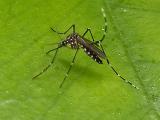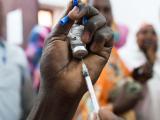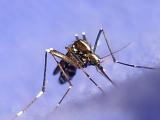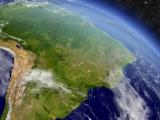Today the World Health Organization (WHO) held its second emergency committee meeting on yellow fever under the International Health Regulations and said the current outbreak in West Africa still does not constitute a Public Health Emergency of International Concern (PHEIC).
"We agree that this continues to be serious and requires sustained control measures," said Professor Oyewale Tomori, the chair of the emergency committee, in a teleconference held in Geneva today.
Tomori, along with Dr. Peter Salama, the executive director of the WHO health emergencies program, gave a brief summary of the meeting's findings, which included updates on the status of yellow fever in Angola, Uganda, and the Democratic Republic of the Congo (DRC).
Vaccine targets met in Kinshasa
"Immunization has been at the forefront of response," said Salama. "And using fractioned doses we reached a targeted population in Kinshasa in the last 10 days."
Salama said 7.7 million people in Kinshasa, DRC, were vaccinated against yellow fever using one-fifth the standard dose in a campaign that began on Aug 18. The diluted dose should confer immunity for at least 1 year.
In addition to meeting the vaccine target in Kinshasa, Tomori and Salama said the global stockpile of yellow fever vaccine was currently at 6 million doses, and the WHO expected that number to increase to 20 million doses by December.
Since the yellow fever outbreak began in Luanda, Angola, in January, the global stockpile of the vaccine has twice been depleted.
Not yet out of the woods
Tomori said there were approximately 6,000 cases of suspected yellow fever to date, with Angola reporting its latest new case on Jun 23 and the DRC on Jul 12.
After 1 month of no new transmissions, Tomori explained, the outbreak can be considered over, but suspected cases in neighboring countries, including the Republic of the Congo, means the organization still considers the outbreak as ongoing.
"We are not out of the woods yet," said Tomori.
The committee first met on May 19. At that time, the WHO decided the yellow fever outbreak was a "serious public health event that warrants intensified national action and enhanced international support."
See also
Aug 16 CIDRAP News story "WHO to reconvene emergency committee on yellow fever"




















